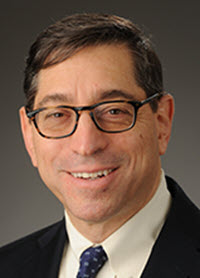Abstract
Excerpted From: Bruce A. Green, Regulating Prosecutors' Courtroom Misconduct, 50 Loyola University Chicago Law Journal 797 (Summer, 2019) (92 Footnotes) (Full Document)
 Decades of writings have addressed prosecutors' "[v]isible, forensic misconduct," such as their improper questioning of witnesses, the introduction of inadmissible evidence, and improper arguments to the jury. It is unsurprising that so much attention has been drawn to prosecutors' efforts to put improper considerations before the jury and to comparable courtroom excesses, since this misconduct is recorded in trial transcripts and often challenged on appeal, generating published appellate opinions. No doubt, the problem is perennial and unceasing indeed, it appears to be the most commonly reported species of prosecutorial misconduct. But it is not necessarily the most serious problem of prosecutorial misconduct. Relatively few criminal cases go to trial nowadays. When prosecutors engage in visible forensic misconduct, it is often a result of prosecutors' negligence, overexuberance, or inadequate training, not a calculated decision to violate procedural norms governing courtroom behavior. And it is assumed that this misconduct is not ordinarily prejudicial, because capable trial judges can ordinarily reduce or avert its impact by sustaining an objection and issuing a curative instruction. One might be forgiven for thinking that other aspects of prosecutorial misconduct are more serious and therefore worthy of study and reform.
Decades of writings have addressed prosecutors' "[v]isible, forensic misconduct," such as their improper questioning of witnesses, the introduction of inadmissible evidence, and improper arguments to the jury. It is unsurprising that so much attention has been drawn to prosecutors' efforts to put improper considerations before the jury and to comparable courtroom excesses, since this misconduct is recorded in trial transcripts and often challenged on appeal, generating published appellate opinions. No doubt, the problem is perennial and unceasing indeed, it appears to be the most commonly reported species of prosecutorial misconduct. But it is not necessarily the most serious problem of prosecutorial misconduct. Relatively few criminal cases go to trial nowadays. When prosecutors engage in visible forensic misconduct, it is often a result of prosecutors' negligence, overexuberance, or inadequate training, not a calculated decision to violate procedural norms governing courtroom behavior. And it is assumed that this misconduct is not ordinarily prejudicial, because capable trial judges can ordinarily reduce or avert its impact by sustaining an objection and issuing a curative instruction. One might be forgiven for thinking that other aspects of prosecutorial misconduct are more serious and therefore worthy of study and reform.
Nevertheless, this Article argues that courts should take prosecutors' courtroom misconduct more seriously. While many relevant writings focus on how courts remedy prosecutorial misconduct, this Article joins those emphasizing courts' disciplinary role. It acknowledges that courts should respond with varying levels of severity to lawyers' trial misconduct, including that of prosecutors, and that improper questions and arguments are ordinarily minor infractions.
As the Chicago Eight trial, discussed in Part I, well illustrates, trial judges deserve criticism when they overreact, as well as when they fail to react, to trial participants' perceived misconduct.
Although trial and appellate courts have a regulatory responsibility, described in Part II, to set standards of proper trial conduct and to protect defendants from being prejudiced by prosecutors' misbehavior at trial, courts' sense of proportionality counsels against punishing prosecutors whose small transgressions are isolated occurrences.
But overlooking prosecutorial misconduct is not necessarily the best regulatory strategy. This Article argues in Part III that if judges do not adequately police minor prosecutorial misconduct when it occurs in plain view, prosecutors may not only continue minor transgressions but also treat more serious rules more cavalierly. This Article urges courts to play a more robust regulatory rule. The challenge is to identify a response that strikes the right balance between proportionality and deterrence.
This Article proposes in Part IV that courts or disciplinary authorities maintain "rebuke banks"--that is, repositories of trial transcripts reflecting prosecutorial misbehavior that earned or deserved a rebuke. These repositories will serve several regulatory functions, including (1) increasing the efficacy of judicial rebukes, (2) facilitating more serious discipline of prosecutors who repeatedly transgress, (3) facilitating discipline of supervisory personnel and prosecutors' offices when trial prosecutors' repeated transgressions are attributable to inadequate training and oversight, and (4) facilitating prosecutorial training. Ideally, more robust regulation of low-level prosecutorial misconduct will strengthen internal professional controls that keep more serious misconduct in check. And, incidentally, in their role as regulators, prosecutors may develop greater empathy for individuals who engage in low-level criminal wrongdoing.
[. . .]
Trial prosecutors' visible misbehavior, such as improper questioning of witnesses and improper jury arguments, may not seem momentous. Sometimes, the improprieties are simply the product of poor training or overenthusiasm. In many cases, they pass unremarked. As the Chicago Eight trial illustrated, trial prosecutors' improprieties may also be overshadowed by the excesses of other trial participants--the witnesses, the defendants, the defense lawyers, or even the trial judge. And when noticed, prosecutors' trial misbehavior can ordinarily be remedied, and then restrained, by a capable trial judge. It is little wonder that disciplinary authorities, having bigger fish to fry, are virtually indifferent to the problem. And yet, in the obvious absence of disciplinary regulation, prosecutors and their offices have less motivation to "play by the rules."
The challenge for disciplinary regulation is to find a proportional response to trial misconduct--one that does not punish prosecutors undeservedly, unnecessarily, or too harshly but that nevertheless serves regulatory ends. Building on the Supreme Court's observation in Berger that the prosecutor's repeated improprieties should have been met with "stem rebukes," this Article proposes that prosecutorial improprieties that are deserving of judicial rebuke should not be forgotten. Rather, repositories--or rebuke banks--should be maintained to preserve transcripts of prosecutors' on-the-record misconduct, even when it is committed unintentionally. Maintaining these records, which would be relatively easy in the computer age, would serve salutary regulatory ends while maintaining the necessary sense of proportionality.
Stein Chair and Director of the Stein Center for Law and Ethics at Fordham Law School.
Please visit my Patreon Page


